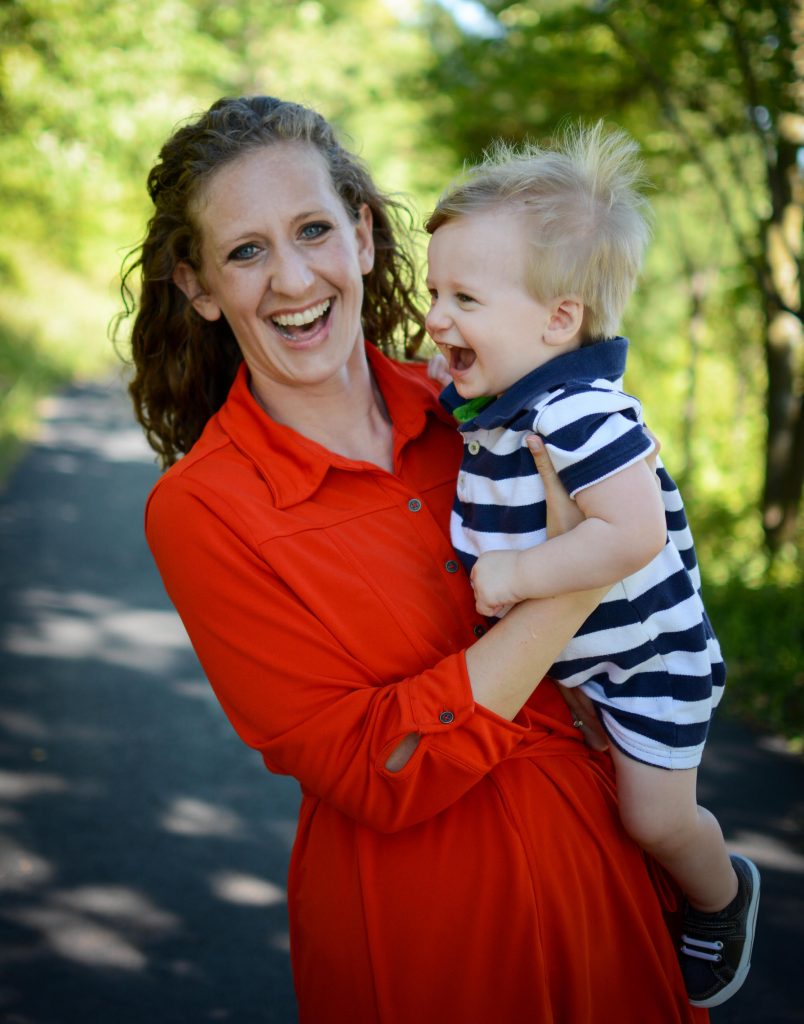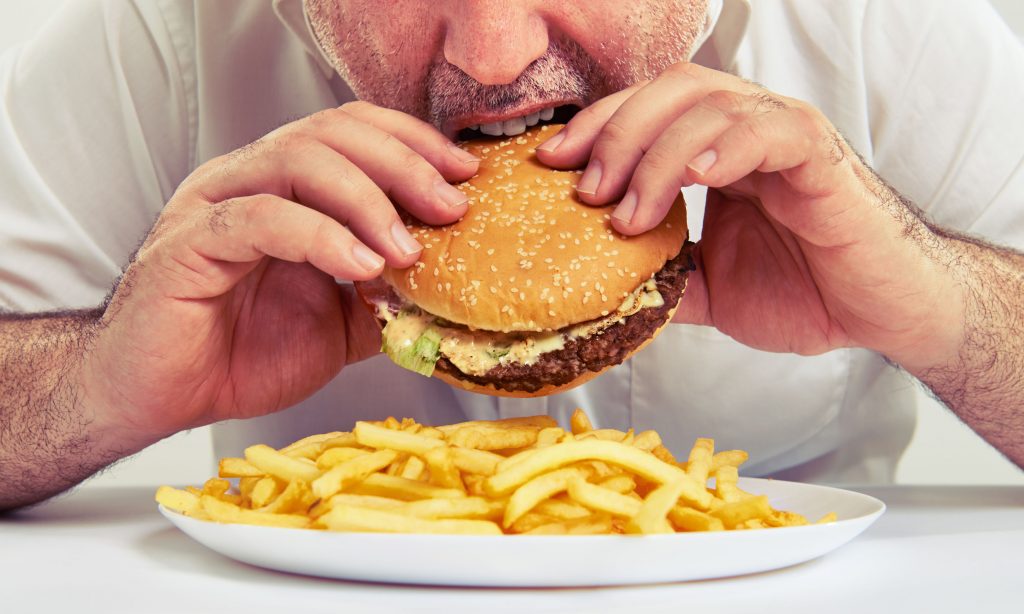If you’re eating like it’s the end of days, well, never fear—so is the rest of America. Call it what you will—stress eating, emotional eating—but it’s a thing and it’s helping us cope in these troubling times. We hit up Katy Harvey, MS, RD, LD, CEDRD, a registered dietitian in Kansas City to find out why gorging ourselves makes absolute sense right now.

Is everyone stress eating right now—or is it just me?
“It’s definitely not just you! Just scroll through social media for a while and you’re apt to see a post or meme about people eating or drinking their feelings right now.
The reason this is so common is that stress eating makes sense in a lot of ways. Bottom line—it’s easily accessible and makes us feel better in the moment. Eating offers a nice distraction from whatever is stressing us out (and we’re in the middle of a pandemic, so it’s safe to say we’re all stressed).
According to the Stress in AmericaTM 2019 Survey by the American Psychological Association, 38 percent of American adults report stress eating (and that’s on a regular day outside of a pandemic). I’d imagine that number is higher right now—and understandably so.”

And while we’re on the subject, why am I eating so much?
“When our bodies perceive we’re under threat, we start to gather and save up energy. Our stress hormone, cortisol, increases which in turn increases our appetite and we want to eat and eat and eat.
Couple that stress with the fear of deprivation and we are biologically wired to eat more. As we stare down the aisles of the grocery store looking at empty shelves, a primal fear that food won’t be available to us when we need it kicks in. Subconsciously our brain tells us, ‘Better eat more now because the food might not be available later.’
The foods we tend to crave while under stress are typically high in carbohydrates and fats. These foods soothe our anxiety because they increase the calming chemicals in our brain that make us feel better. It’s like giving a baby a bottle to put them to sleep.
When our stress and anxiety are high, it’s normal to want to eat to feel better. And you know what, there’s nothing wrong with doing so. You are still the same wonderful person regardless of what you eat, so cut yourself some slack.”
Emotional eating is one thing, but people have never really been thrown into this sort of “pandemic panic” before. Is it fear of the unknown?
“Absolutely. We are living through an unprecedented situation and the truth is nobody knows what they are doing. We are all just doing the best we can to get through it.
The COVID-19 pandemic is activating all sorts of fears for people. Fear of illness, fear of death, fear of job loss, fear of financial insecurity, fear of not having what we need (hence the toilet paper shortage).
When we are afraid, we go into fight-flight-freeze mode. Each of us responds in our own way, and we need to have grace for each other.”

How much does being at home and/or boredom play a part?
“Being at home right now is a bit of a perfect storm for stress eating. Your home has an abundance of food (assuming you stocked up at the grocery store like most people), and you have a lot of time on your hands. The kitchen is readily accessible and there’s nobody around but your family or roommates to see you eat. This is the perfect combination of trigger + opportunity + convenience to make you want to constantly eat.”

How do we curb those constant triggers or inexplicable urges to eat?
“The first step is to distinguish between when you’re wanting to eat due to physical hunger versus emotional hunger. You can do that by asking, “Am I actually hungry right now?” before you eat something.
If the answer is yes, then figure out what you’re hungry for and give yourself full permission to eat until you’re satisfied.
If the answer is no, then the next step is to ask yourself, “What do I need right now outside of food?” It might be that you’re stressed and you need a break. Or that you’re bored and you need something to do. Or that you’re lonely and you need some connection. By identifying what it is you’re feeling, you can determine what you need (besides food).
It’s also important to talk about your feelings. Just because we’re social distancing doesn’t mean that we have to be socially isolated. The beauty of modern technology is that we can communicate with our family and friends so easily. Be intentional about checking in with your friends and family and telling them how you’re feeling and listening to how they are feeling. Knowing we’re all in this together makes us feel connected and that’s a really powerful thing.”

Right now, I’m obsessed with sweets and starches. I would put frosting on fettuccine if I could. Are sugar and carbs typical go-to’s?
“Yep, they sure are. And it makes sense biologically speaking. When we eat sugar and carbs the rewards center in our brain lights up like we’ve hit the jackpot at the casino. It says ‘ding, ding, ding, you’re a winner!’ Which, of course, makes us want more, and makes us want to eat those foods again in the future.
Those foods that offer tasty, quick energy—like that piece of chocolate cake or that bowl of fettuccine—are exactly what our brain thinks we need. Foods higher in fiber or protein (like veggies or meat) are less exciting to our brains in times of stress because they digest more slowly and don’t give us that quick energy we would need to fight the tiger or flee to safety. Hence we turn to the chips and ice cream.”
Finally, ‘fess up—are you stress and/or emotional eating right now? And if so, what?
“I’m definitely not immune to turning to food in times of stress or emotions. In fact, I’m embracing those feelings and choosing to eat intuitively in response to them. My comfort foods lately? Candy—jellybeans and M&M’s to be precise. There’s something about the bright rainbow colors and sweet taste that is playful and fun—a nice contrast to the stressful situation we’re living in.
And what’s great is that I can eat those foods without going overboard. I listen to what my body is hungry for, and I pay attention to when I’ve had enough. So when I eat ‘comfort foods’ it truly offers comfort because I stop when I’m pleasantly full. And I’m not going to feel guilty about it for one second.”
—Katy Harvey, MS, RD, LD, CEDRD, is a registered dietitian in Kansas City. In addition to her private practice where she helps people make peace with food, Katy is also a writer, blogger and speaker dedicated to spreading the word about body acceptance and intuitive eating.


